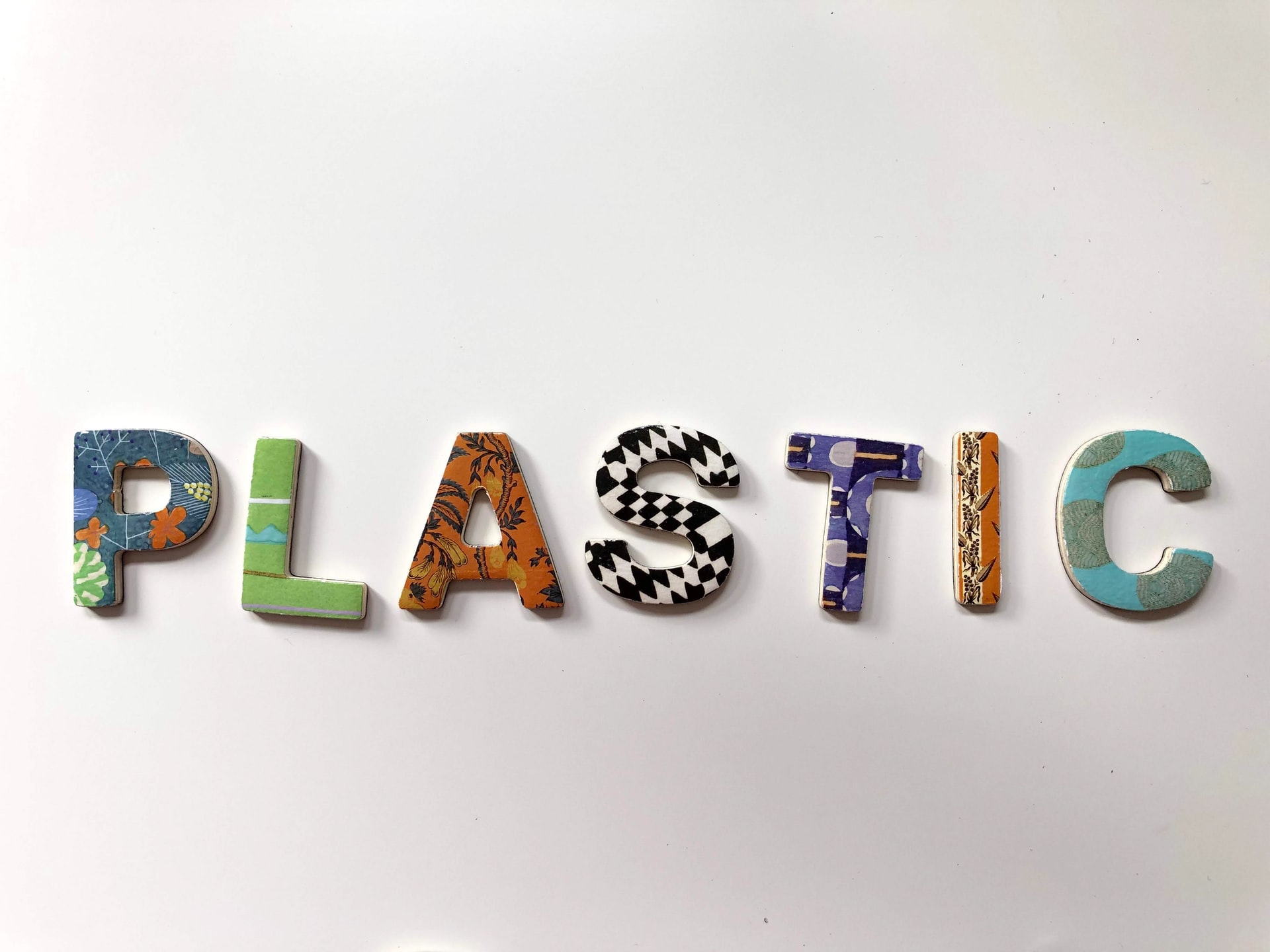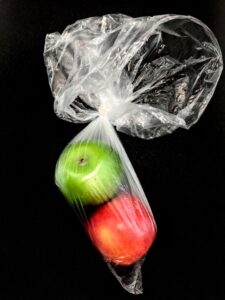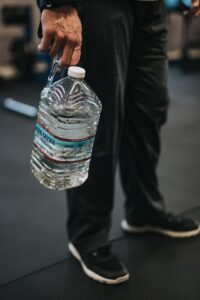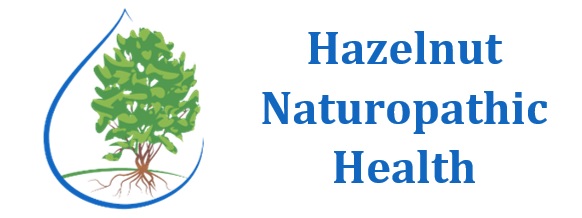
Plastics and Why You Should Avoid Them
Plastics and Why You Should Avoid Them
Disclaimer: This page contains some affiliate links. I may earn a small commission when you click any link here to which goes back into Hazelnut Naturopathic Health. You are not charged any extra money if you decide to make a purchase, and you help fund a local business focused on improving the health and well-being of the communities of West Michigan. These are products which I recommend to clients who ask, and all of the affiliate links here belong to companies/products which I have tried and personally love.
Plastic is Everywhere...
So you may be asking yourself, what's the big deal? Plastic is a huge part of life anywhere in the world where modern conveniences are the normal standard of living. Food containers at the grocery store, televisions, LED light bulbs, water bottles, children's toys, and toothbrushes are often made out of plastic. It is commonly used in hospitals, doctors’ offices, and dental offices because of its convenience and safety as a single use product. In some settings such as the medical field, it is inescapable, but in your own home, it is possible to reduce your exposure with surprisingly little effort. Read on to learn more about plastics and why you should avoid them.
Reasons to Avoid Plastic
First, let’s talk about the science behind why it’s a good idea to limit or remove most plastics you encounter on a daily basis. At this point in time, most people have heard of BPA and that it's bad for you. But what is it? BPA stands for Bisphenol A, a compound that is present in kitchen utensils, baby toys, plastic packaging, and even metal cans that come into contact with food. Our livers process BPA, changing it into bisphenol A glucuronide which is generally excreted in urine. Known as an endocrine-disrupting substance, it impedes our body's hormones. It interferes with estrogen receptors, linking it to infertility, early puberty, PCOS, and some cancers [1].
Another chemical called Di-2-ethylhexyl phthalate (DEHP) makes plastics more flexible. It is present in medical products, soft plastic children’s toys, furniture upholstery, mattresses, and much more. It also interferes with hormones, neurodevelopment of unborn babies, and some studies have indicated it causes toxicity in ovaries and kidneys in mice models [2]. Finally, a study by Shasha Qian looked into chemical compounds present in plastics considered 'acceptable for human use', and out of 120 safe products, only 13% of nearly 100 compounds were permitted by the European Union [3]. Most of the compounds were low toxicity, but the amount of unknown chemicals present is alarming.
How Do You Avoid Plastic?
Plastic chemicals can be absorbed through the mouth, by inhalation into the lungs, and through contact with the skin. In order to reduce exposure to these potentially dangerous chemicals, you can change some of the products you use on a daily basis. Glass is an inert substance that doesn’t leach chemicals due to the nature of the material, and stainless steel is also a good material to use.
As for myself, I avoid drinking out of plastic bottles as much as possible. I carry around a glass water bottle like this one although a stainless steel one like this is on my wishlist. I also use Pyrex containers for foods storage because they are relatively cheap and easy to find. Additionally, I even spent some time researching food plates for my children to use; it was challenging to find something which wasn’t easily breakable but would hold up to the type of abuse only children can do.
What to Do if You Are Exposed
Please keep in mind that none of the chemicals listed here are so toxic that, by themselves, they will cause death. What I am suggesting is in some percentage of the population, chronic exposure to these chemicals can lead to health problems such as those already mentioned. Sometimes it isn’t possible to get rid of plastic completely, especially when you are on a budget. In these cases, it is important to know that your body is able to process these chemicals, especially when detox pathways are supported.
Peeing and pooping are two of the most important ways our bodies can get rid of toxins. Eating a high fiber diet is important for bowel health, feeling full longer, and can even lower cholesterol. Fiber also binds with substances in the body and can help carry them out during defecation. The goal is to have at least one bowel movement a day that is well-formed and easy to pass. Fruits and vegetables are great sources of fiber; for example, an apple contains roughly 4 grams of fiber. The daily fiber goal is 25 grams for women and 38 grams for men. For urinating, be sure to drink enough water. Strive to at least 6-8 oz of water every hour or so. You should keep track of your water intake by watching your urine. The goal is to have a pale yellow color which means you are hydrated.
Don't Forget the Liver!
Lastly remember your liver. You want to support your liver, your primary detox organ. The liver works hard breaking down substances, detoxifying the body, making proteins and hormones, and plays a role in blood sugar balance. Liver supportive foods include beets, broccoli, carrots, kale, sweet potatoes, avocados, cherries, and even brown rice. Try to eat a wide variety of colors; the bright colors in foods indicate the presence of antioxidants which will help protect the liver from damage. Herbally, milk thistle (Silybum marianum) has silymarin which research has shown improvement in liver symptoms and quality of life [4]. For more information on supporting your liver or detoxing your system, schedule your Discovery Visit (15 minutes) with Dr. Blandford.
Learn more about Naturopathic Medicine here.
Resources:
- Konieczna, A., Rutkowska, A., & Rachoń, D. (2015). Health risk of exposure to Bisphenol A (BPA). Roczniki Panstwowego Zakladu Higieny, 66(1), 5–11.
- Rowdhwal, S., & Chen, J. (2018). Toxic Effects of Di-2-ethylhexyl Phthalate: An Overview. BioMed research international, 2018, 1750368. https://doi.org/10.1155/2018/1750368
- Qian, S., Ji, H., Wu, X., Li, N., Yang, Y., Bu, J., Zhang, X., Qiao, L., Yu, H., Xu, N., & Zhang, C. (2018). Detection and quantification analysis of chemical migrants in plastic food contact products. PloS one, 13(12), e0208467. https://doi.org/10.1371/journal.pone.0208467
- Guan, Yong-Song & He, Qing. (2015). Plants Consumption and Liver Health. Evidence-based complementary and alternative medicine : eCAM. 2015. 824185. 10.1155/2015/824185.
Photo by Merakist, Sophia Marston, and Nathan Dumlao on Unsplash



Leave a Comment
(0 Comments)